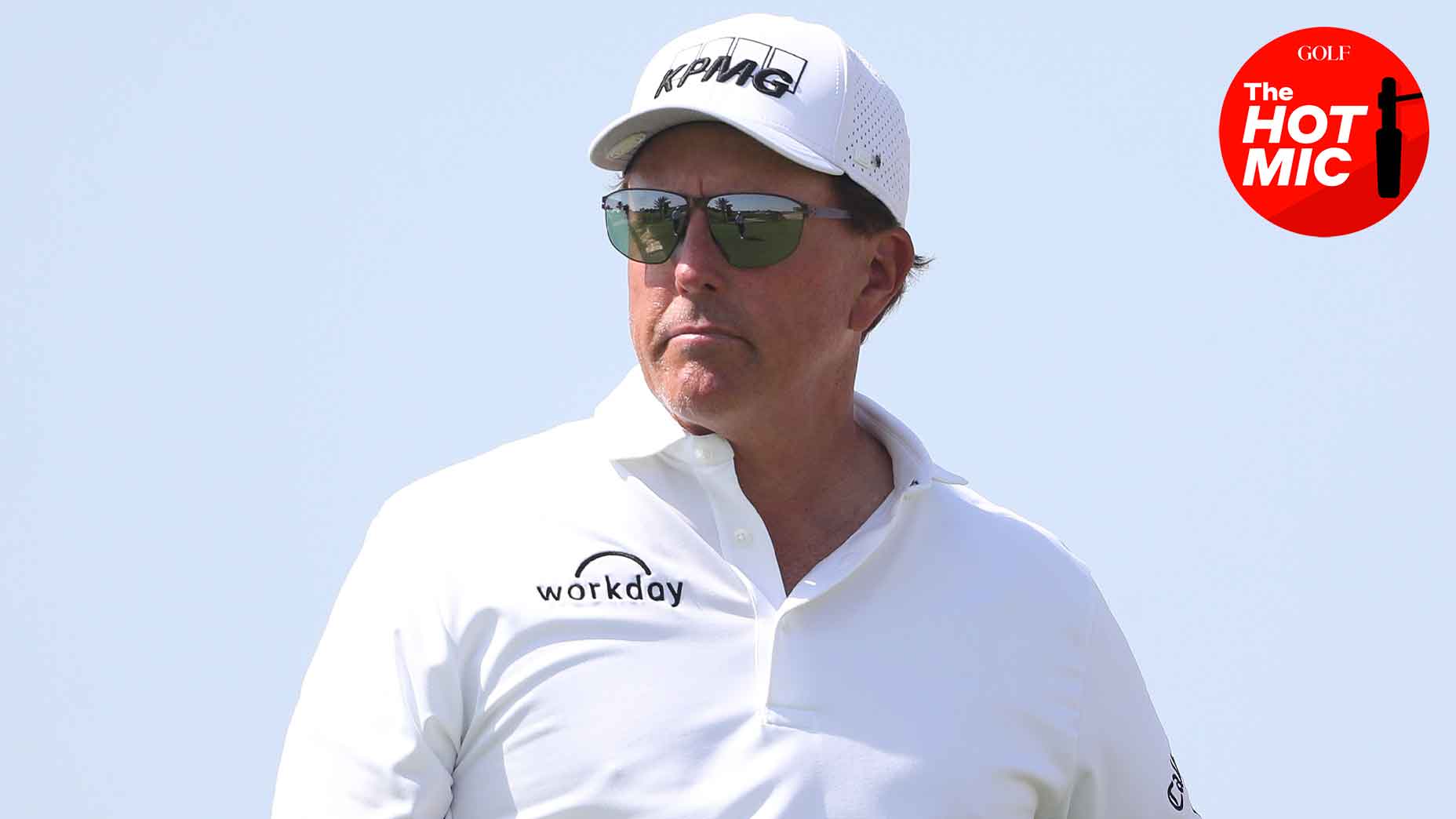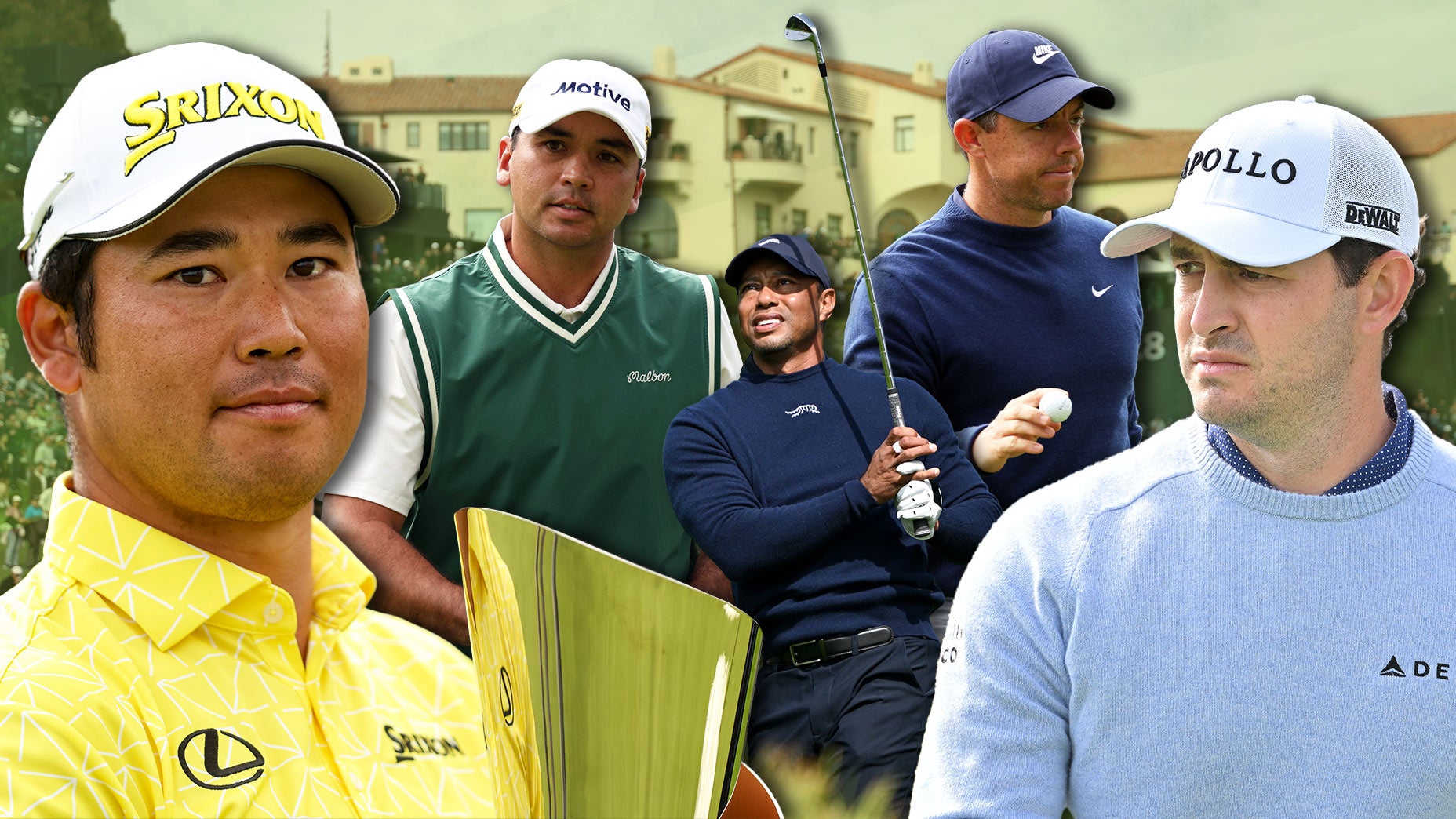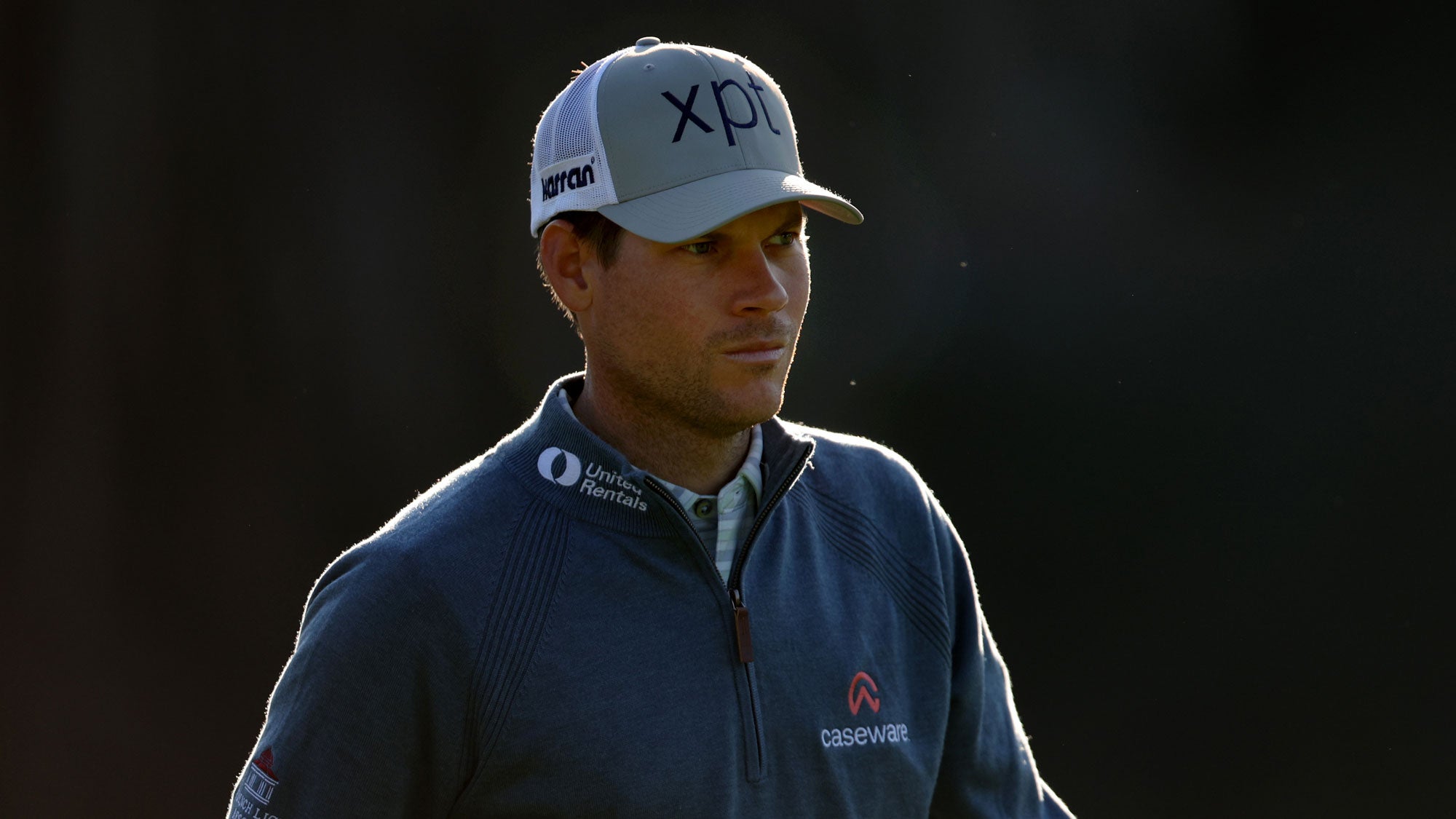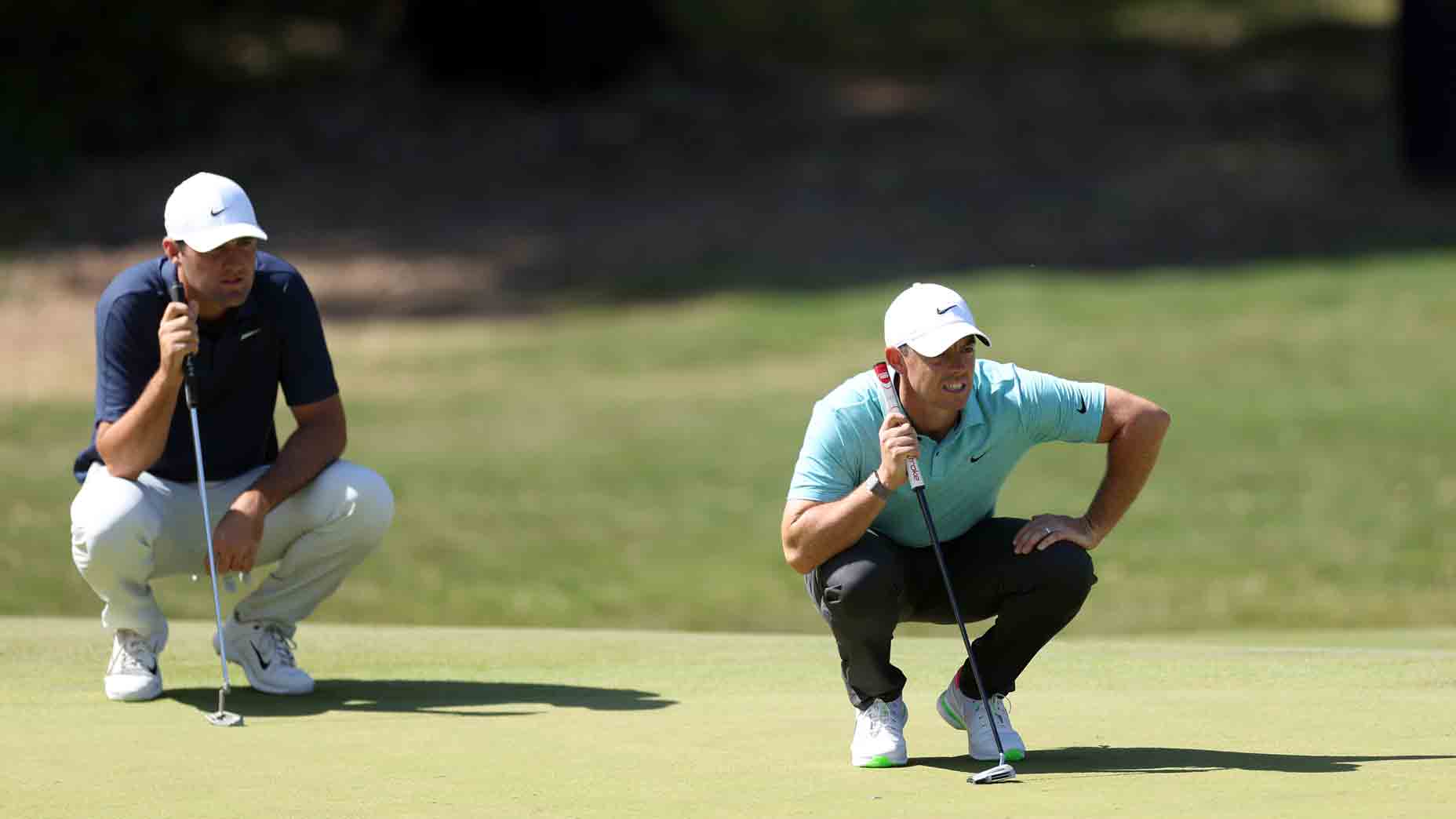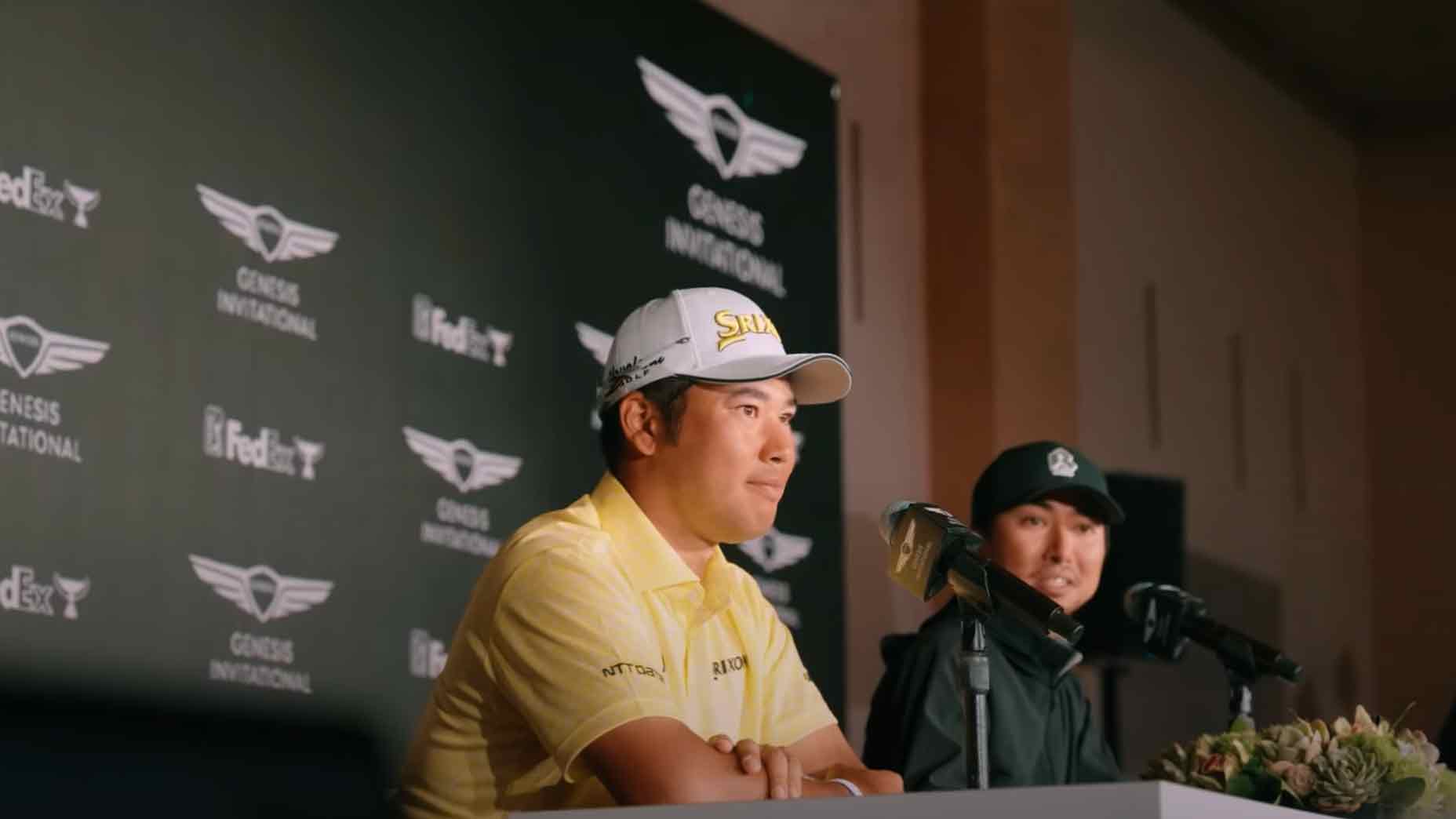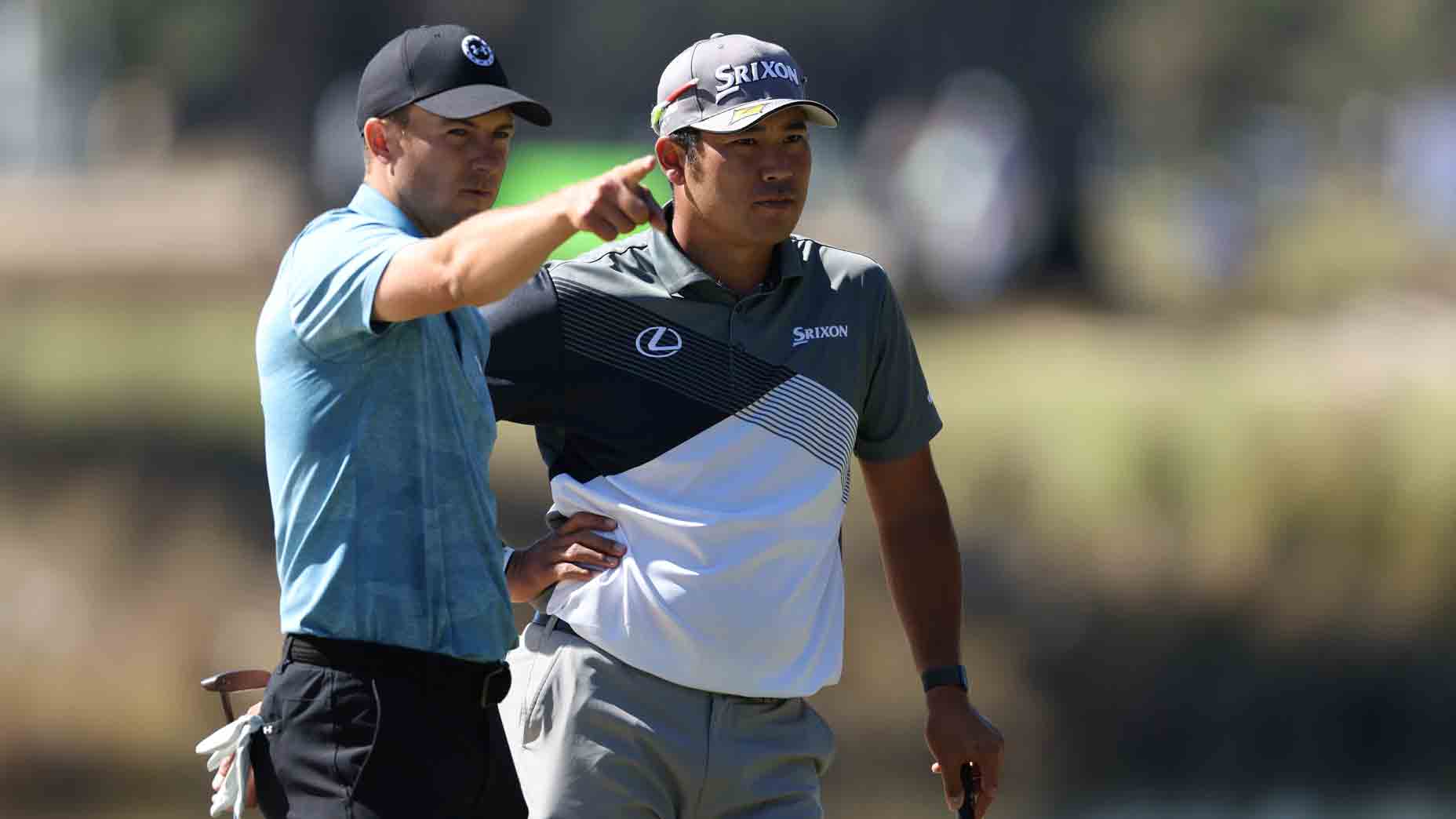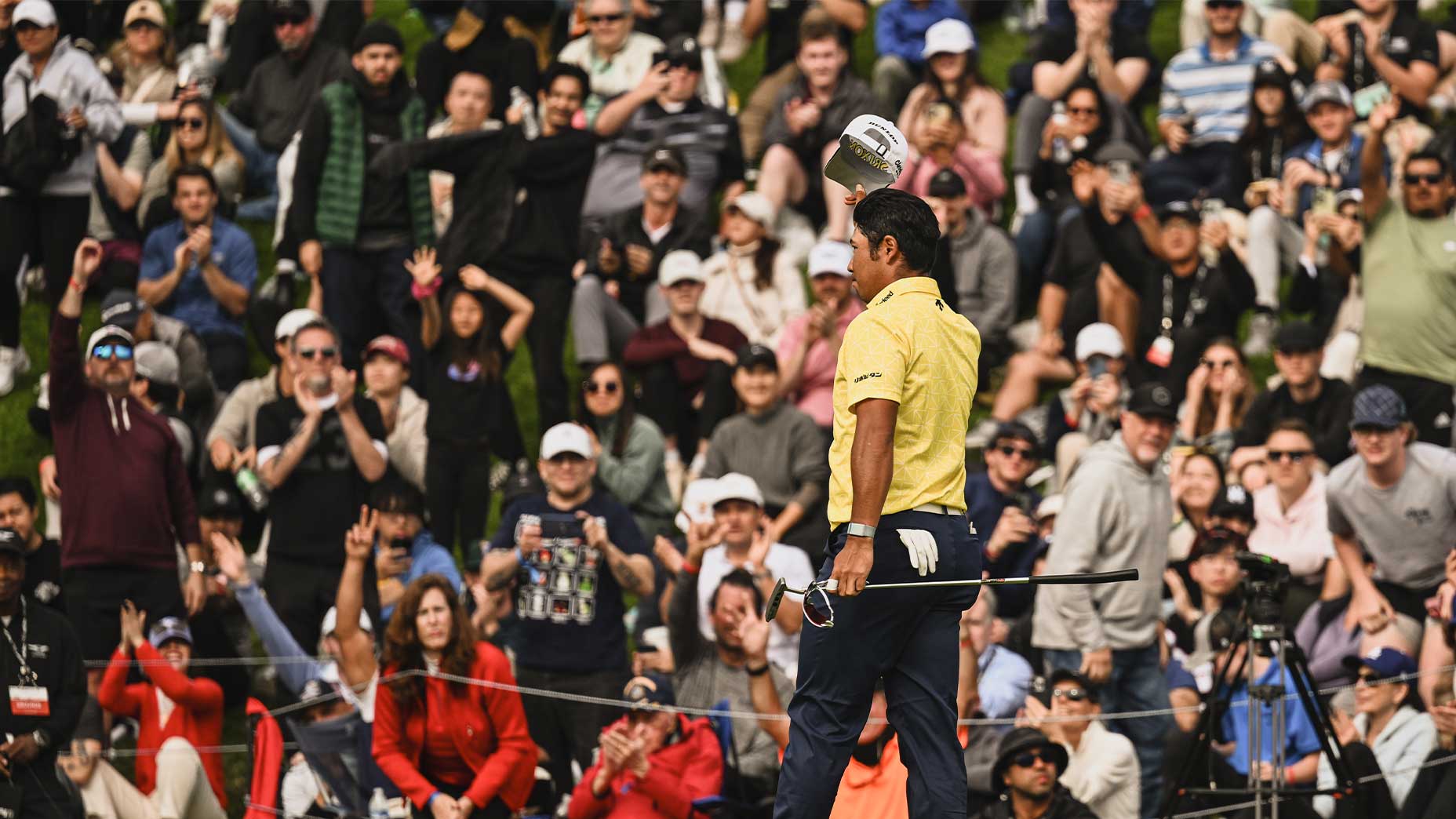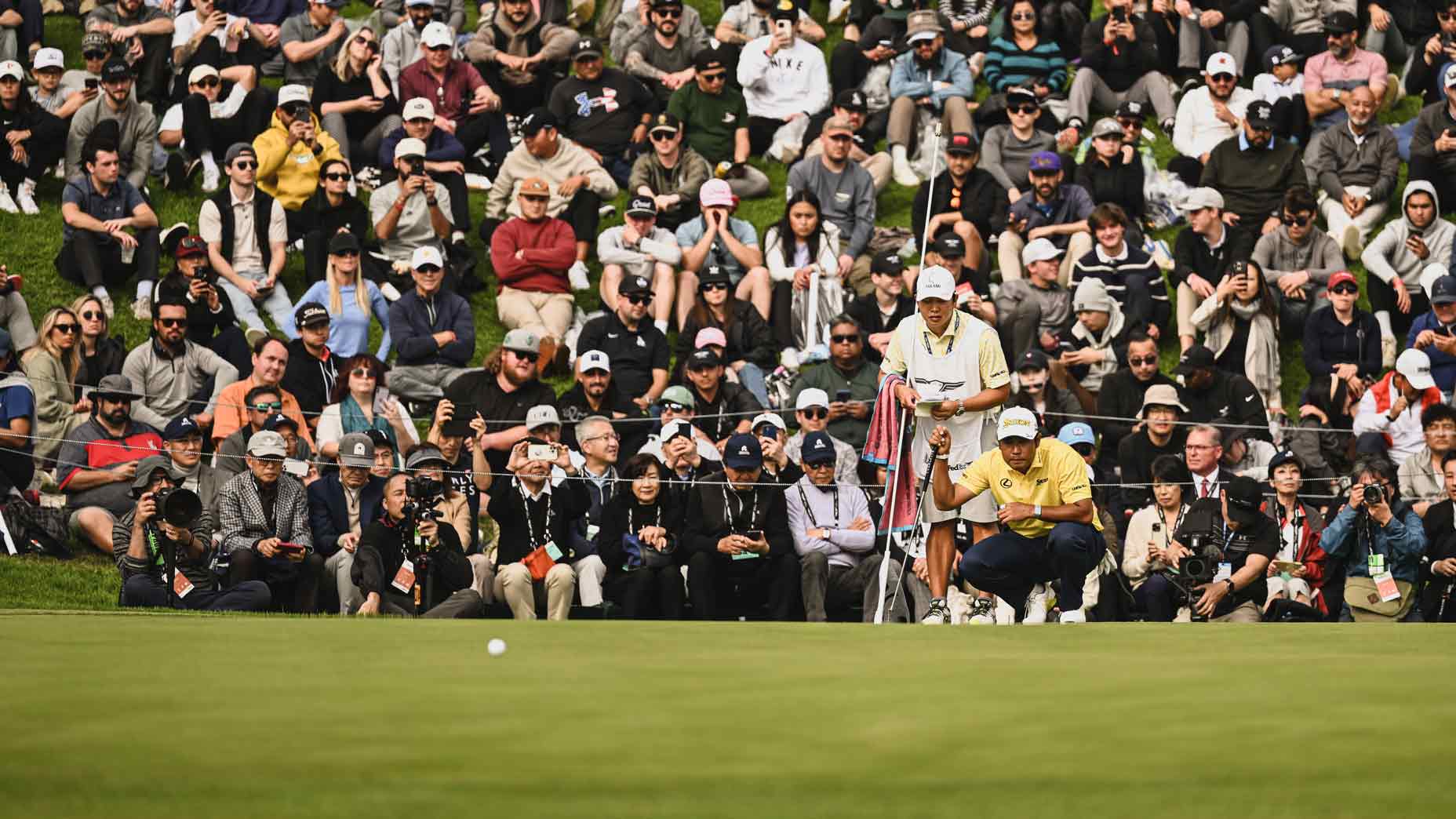Tiger Woods delivers surprising response to Phil Mickelson’s media rights gripes
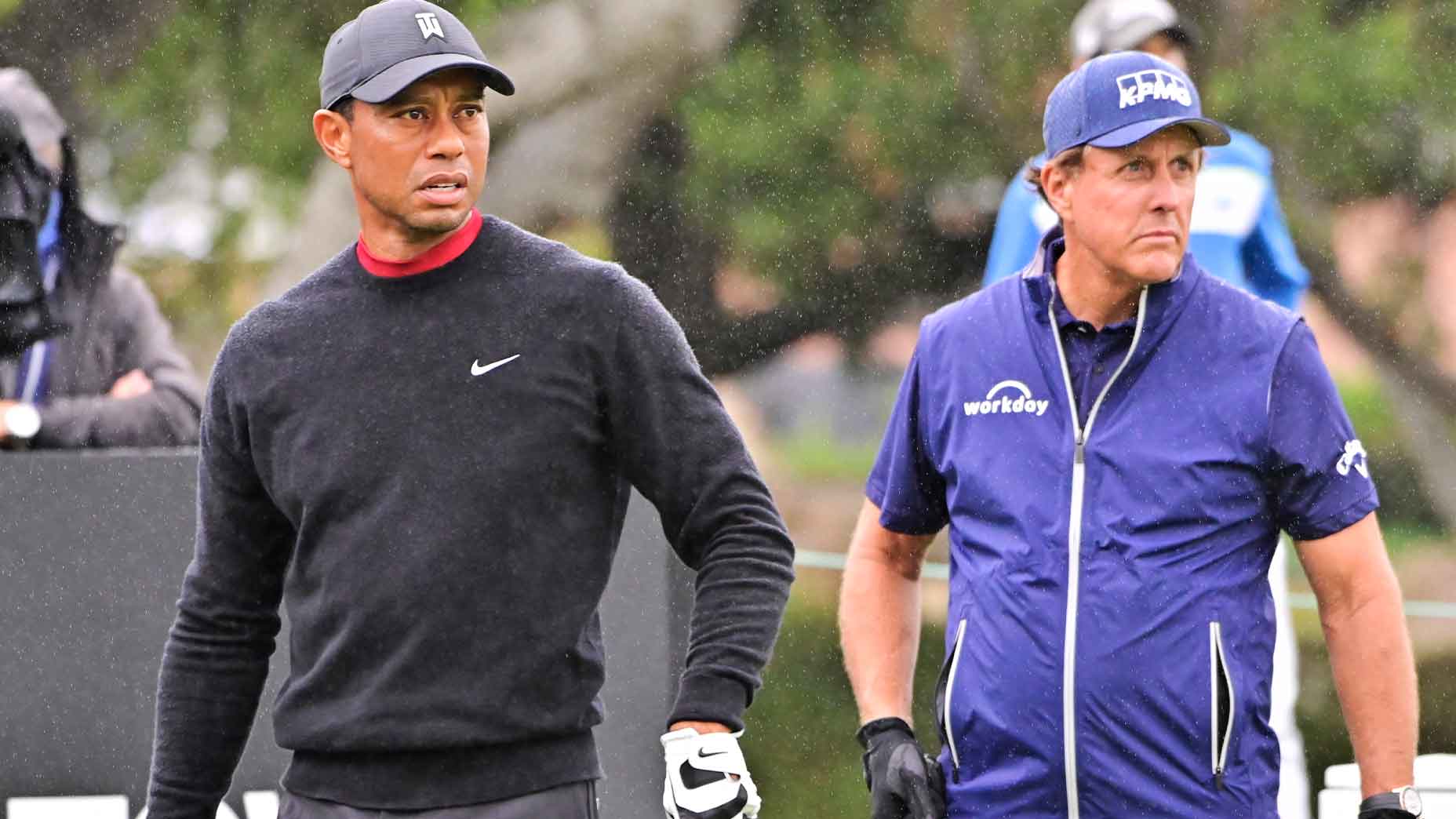
Phil's media rights comments caught Tiger's attention — but why?
Getty Images
If a quarter-century of Tiger Woods press conferences have taught us anything, it’s not to get our hopes up.
It’s not that the 15-time major champion’s relationship with reporters is contentious. Like any longstanding coworkers, each party has respect for the other’s duty to his role. (Wednesday’s presser at the Genesis Invitational reminded us Woods even keeps nicknames for some reporters.)
It’s just that Tiger treats public statements the same way most of us treat trips to the dentist: necessary, but preferably as infrequent, painless and brief as possible.
In his press conferences, that manifests itself largely in boredom. With rare exception, he remains true to his early-intervention public relations training (Earl was an Army PIO for most of his childhood). He answers only the questions he’s asked, generally in as few words as he can muster, with the unstated aim of producing nothing of substance.
In other words, Tiger’s talents with media might not raise to his ability with a golf club, but they’re both worth praise. When he says nothing, we hear it, and when he says something, anything of substance, we listen.
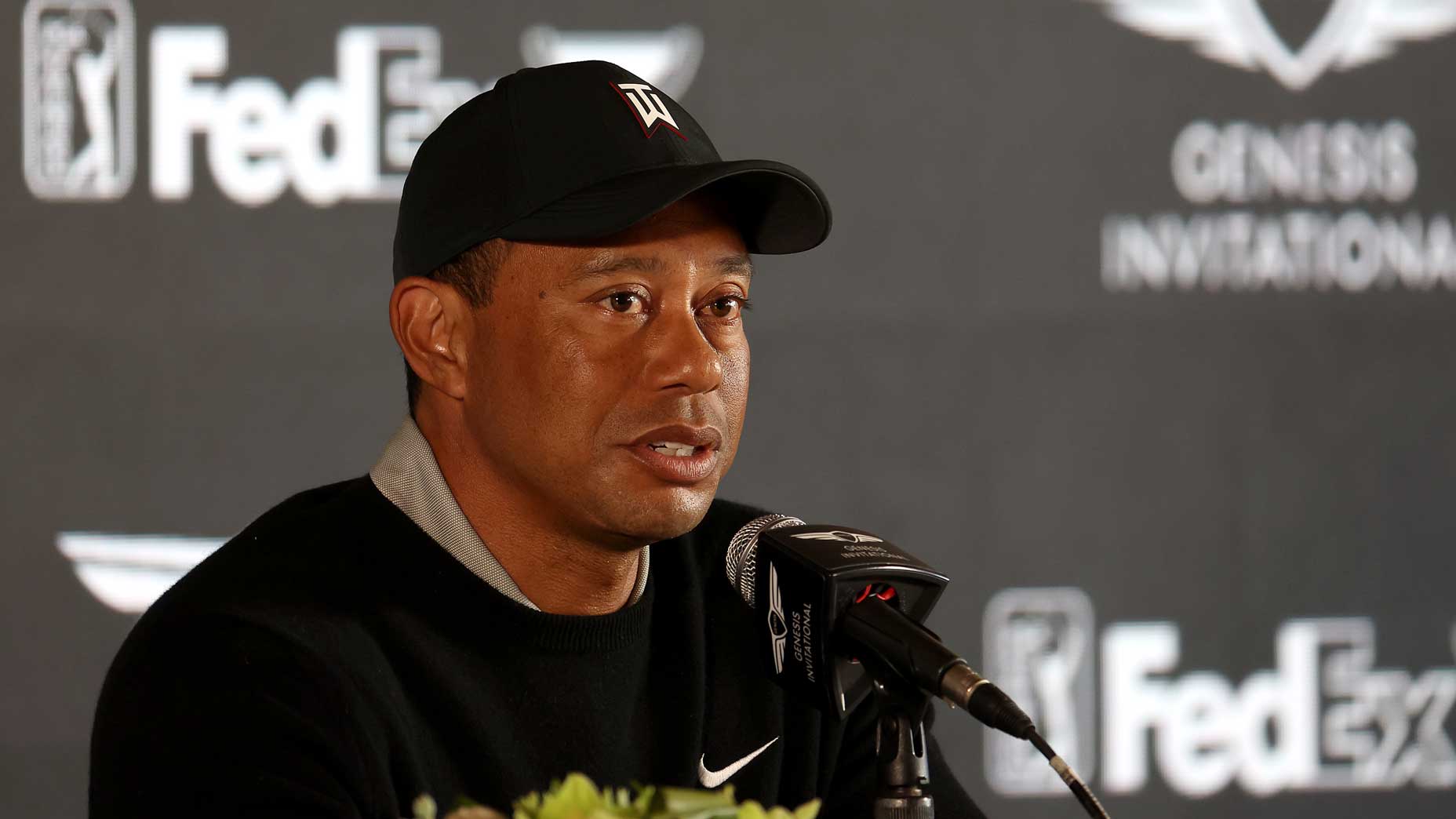
On Wednesday at the Genesis, well past the 20-minute mark of his press conference, Tiger broke from form. It happened so quickly and sounded so similar to the answers that came before and after, it’d have been easy to miss. The question came from the Associated Press‘s Doug Ferguson, who wondered, did Tiger share Phil Mickelson’s gripes with the PGA Tour over its usage of his media rights?
Tiger took a deep breath, then delivered a 320-word soliloquy in which he didn’t take sides but did reveal a striking amount of insight. Below is his answer, in full:
“Yeah, that’s something that — we’ve struggled with that for decades really. If you remember Larry [Rinker] wanted to unionize our Tour and we went through that whole process.
“Probably what we didn’t understand at the time even when I first came out here over 25 years ago is where our Tour would go, where our media would go. We barely had cell phones, barely had the internet.
“Media rights is a big thing. A lot of us are concerned about what is the direction where we’re going and how can we have more control over that. There’s been a lot of talk from whether it’s the PAC or the board or from players internally. Everyone has their opinion about it, but we need to come to a collective decision.
“Jay has taken it all in to try and figure out what’s best for each and every individual player because we’re all independent contractors, but again, what is best for the Tour as a brand as well. Trying to put all that together, meanwhile still grow the Tour at the same time and all the different media rights that have come about over the last 10 years, whether it’s streaming, which didn’t exist, where do you go on that, where does the Tour go, who owns those rights, how much do you share of that, where does it go.
“But I have to say that one of the things that allows our sport, what separates our sport so much is, one, the fact that we were able to have the best retirement plan there is in all of sports, and we have an opportunity to play well past our playing days and still earn well over a million dollars well into our 50s where football players are done at nine years.
“Yes, there’s give and take, okay? We just need to find — there’s a balance of what’s best for the players and what’s best for the brand.”
Just weeks after Phil’s explosion at the Tour for being what he sees as the gatekeepers of untold billions in media assets and the Tour’s subsequent assertion of the business realities that led to their grip on player media rights, Woods plunged his stake firmly into the middle ground.
His statement didn’t have the panache of “obnoxious greed” nor the sparkle of “Phil’s making stuff up,” but in a few paragraphs, Tiger cut to the reality of the situation: neither party is totally right. Phil, for his efforts, probably would have been better served not burning the Tour to the ground with claims of dubious factuality. Woods was never going to join him in that fight.
But nobody was talking about Larry Rinker’s 1998 attempt at forming a PGA Tour Players Union until Woods resurfaced his name Wednesday afternoon. Generally, players as media-savvy as Woods don’t throw around words like ‘unionization’ unless they mean it. And Mickelson’s core issues with the Tour would seem to be the very same questions about “direction” and “control” of player media rights Woods raised.
The point, it seems, is that Tiger Woods does not have an axe to grind with the PGA Tour, but he does have some earnest questions about the necessity of some elements of PGA Tour media rights (particularly those that govern all highlights as property of the Tour in perpetuity). He, like many other players, is wondering if the way things are is also the way things have to be.
It’s a question worth asking, particularly in an era defined by player rights in professional sports. A question that could have bottom-line implications for the Tour and its constituents. And a question PGA Tour brass will no doubt be hearing from players as rumored defections to a Saudi golf league grow larger by the day.
Some, like Phil, have used their words in the hopes of scorching a new answer unto the earth. Others, like Tiger, seem to realize there’s virtue in speaking softly.
Just so long as you’re carrying a big stick.

